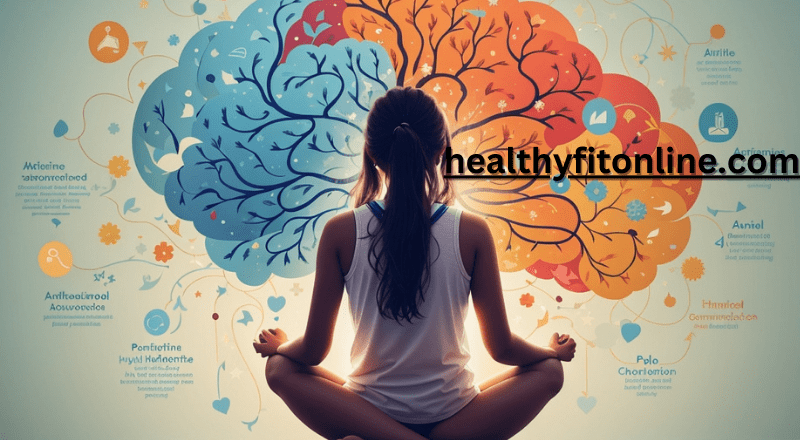Introduction
In today’s fast-paced world, where we juggle multiple responsibilities, maintaining a healthy lifestyle can be challenging. Mental health and fitness are two vital components of our overall well-being, and they are more interconnected than you might think. This article explores the intricate relationship between mental health and fitness and how they impact each other.
Understanding Mental Health
Defining Mental Health
Mental health is a state of well-being where an individual realizes their own potential, can cope with the normal stresses of life, work productively, and make a meaningful contribution to their community. It’s not merely the absence of a mental disorder but a state of emotional, psychological, and social well-being.
Importance of Mental Health
For our quality of life, mental health is essential, influencing how we think, feel, and act. A healthy mind is key to forming and maintaining good relationships, coping with stress, making informed decisions, and contributing to society.
The Physical Effects of Mental Health
Stress and Its Impact
Stress, if not managed properly, can take a toll on both your mental and physical health. Chronic stress can lead to various physical ailments, such as heart disease, high blood pressure, and a weakened immune system.
In essence, the toll that unmanaged stress can take on both mental and physical health is undeniable. Recognizing the importance of stress management and adopting healthy coping strategies is crucial in safeguarding your overall well-being, reducing the risk of heart disease, high blood pressure, and other health complications, while also promoting a healthier, happier state of mind.
The Immune System Connection
Studies have shown that stress can weaken the immune system, making individuals more susceptible to illnesses. Maintaining good mental health is, therefore, crucial for a robust immune system.
The Psychological Aspect of Fitness
Exercise and Mood
Engaging in a consistent regimen of physical activity can have a profound impact on your emotional well-being. When you exercise regularly, your body responds by releasing a cascade of powerful neurochemicals, one of which is endorphins, often affectionately referred to as the “feel-good” hormones.
These remarkable molecules act as natural painkillers and mood elevators, working in harmony to bring about a sense of joy and contentment.Endorphins, produced by the central nervous system and the pituitary gland, are instrumental in alleviating symptoms of depression and anxiety.
Coping with Anxiety and Depression
Exercise serves as a powerful and invaluable resource for individuals grappling with anxiety and depression. It not only enhances physical well-being but also acts as a cornerstone for improving mental health.
In essence, exercise is not merely a physical activity; it’s a holistic approach to healing. It provides an avenue for releasing stress, a source of accomplishment, and a powerful tool for challenging the shadows of anxiety and depression. By incorporating exercise into one’s routine, individuals can embark on a journey towards improved mental health and emotional well-being.
The Mind-Body Connection
The mind and body are intricately linked. When you exercise, your body releases chemicals that positively impact your brain, improving mood and reducing stress. This connection highlights the importance of a holistic approach to health.
Strategies to Improve Mental Health Through Fitness
Regular Exercise Routine
Incorporating physical activity into your daily life is essential. Whether it’s a brisk walk, a yoga session, or a full gym workout, regular exercise can promote good mental health.
Balanced Diet and Nutrition
A well-balanced diet can provide your brain with the necessary nutrients to function optimally. Foods rich in omega-3 fatty acids, whole grains, and antioxidants can support mental well-being.
The Role of Sleep
A cornerstone of good mental health is quality sleep. Establishing healthy sleep patterns can improve your mood, cognitive function, and overall well-being.
Mindfulness and Meditation
Practicing mindfulness and meditation can help you manage stress and enhance self-awareness. These techniques are valuable tools for maintaining a sound mind.
Seeking Professional Help
In day today we struggle with mental issue if we not resolve by ourself, immediately we consult the professional help and Mental health professionals can provide guidance, support, and therapeutic interventions to improve your mental well-being.
Case Studies: Real-Life Examples
Explore real-life stories of individuals who have transformed their mental health through fitness and gain inspiration from their journeys.
Overcoming Common Obstacles
We’ll discuss common obstacles that people face when trying to improve their mental health through fitness and provide practical tips for overcoming them.
Conclusion
In conclusion, mental health and fitness are closely intertwined. Taking care of your body through regular exercise, a balanced diet, and quality sleep can significantly impact your mental health. Likewise, a healthy mind can motivate you to maintain an active lifestyle. It’s about feeling good, not just about looking good. Remember.
FAQs
Q: How can I incorporate fitness into my daily routine to improve my mental health? A: Start with small, achievable goals, like a 30-minute walk each day. We can increase the intensity of workout gradually.
Q: What is the most effective stress management technique for mental health? A: Mindfulness meditation is highly effective. It helps you stay present and reduces the impact of stress on your mind and body.
Q: Can diet really affect my mental health? A: Yes, your diet can significantly impact your mental health. Consuming a variety of nutrient-dense foods can boost cognitive function and mood.
Q: How do I improve emotional intelligence? A: Practice self-awareness and empathy. Engaging in open, honest conversations with others can help develop your emotional intelligence.
Q: What are the signs of an unhealthy mind-body connection? A: Signs may include chronic stress, fatigue, mood swings, and a weakened immune system. Seek professional help if you experience these symptoms.
Q: How can I build a strong social support network? A: Join clubs, classes, or groups related to your interests. Engage with people who share your passions, and be open to forming new connections.



